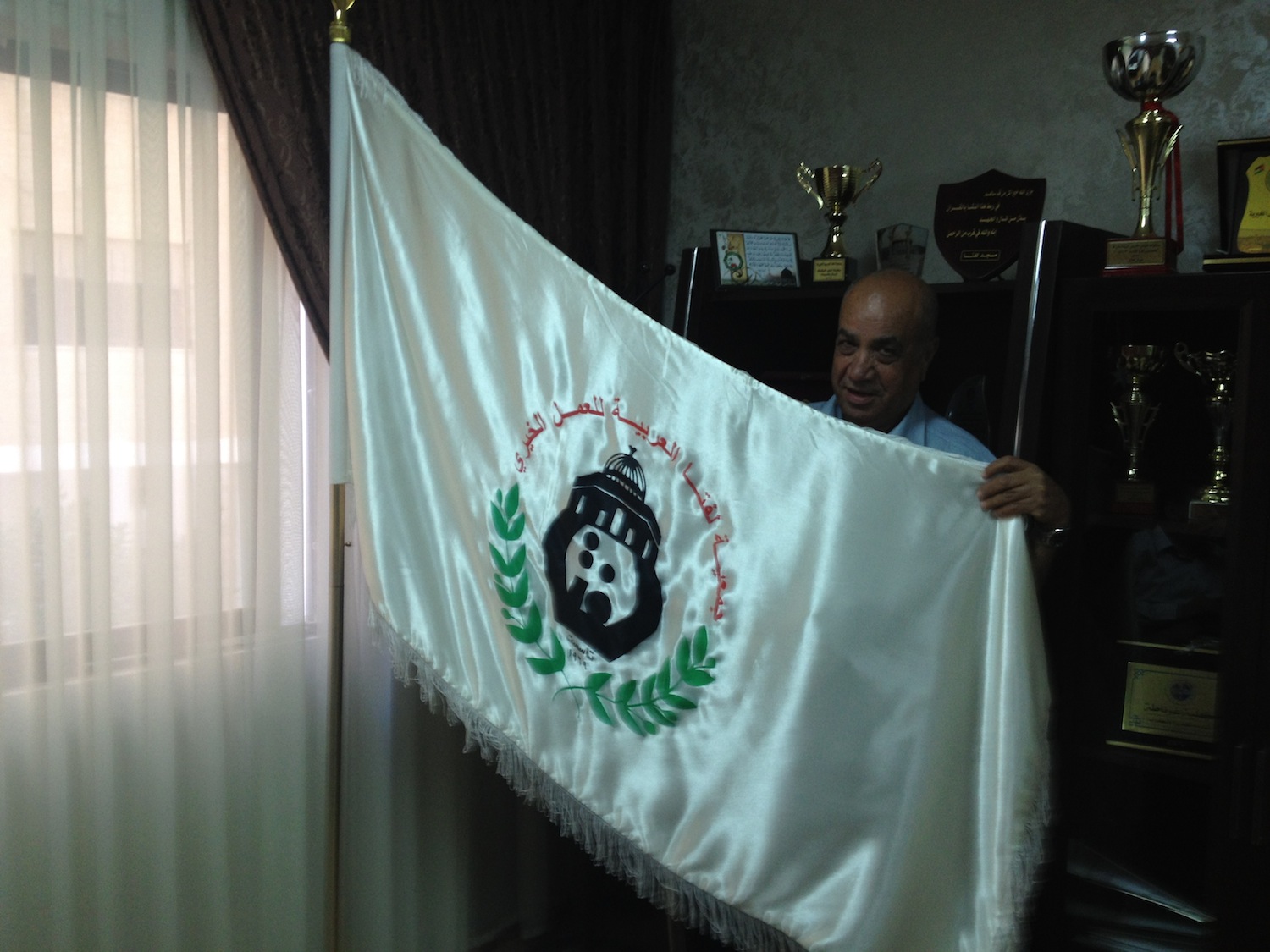
Laura van Rij (LR): What is your connection to Lifta?
Osama Rabie (OR): I just visited Lifta once, you know. But my parents are from Lifta. My father was a teacher in the school there, before 1948. So I am connected to Lifta. The Jewish people thought that the new generation would forget. But what is happening now is that they are more connected to Palestine than the old generations. The new technology also helps; people are sharing stories and pictures on Facebook now.
LR: Do you remember stories your parents told you about Lifta?
OR: My father used to tell stories about the life, the weddings. The wedding of my father was the last one I think. When you get married you make food for all the people, and they give you money. My father got the most money in the whole history of Lifta. My father teached the children of all the villages, Deir Yassin, Ein Karem… He teached sports. Right before the war started, in 1947, there was a sports festival for all the villages surrounding Jerusalem. Lifta won the competition. I think people there were simple people, but very well educated. I think they were so well educated because they were near Jerusalem. Jerusalem is built for a big part with stones from Lifta, I consider it as a part of Jerusalem. Lifta was given special importance during the war because Jaffa street goes right through the village and this road was the main connection between Jerusalem and Tel Aviv. That is why most Liftawi´s left already in 1947, they were driven out. They were massacred. What happened was that one of the Liftawi´s attacked a bus and then the Jews attacked the coffee house. Six people were killed. Half of the people left because they were frightened. They didn´t have anything to fight with, so they had to leave.
LR: Where did your parents go to after they fled from Lifta?
OR: I think when they would have known that they would not be able to come back; they would not have left their houses. They went to Ramallah but after a few years they moved to Amman. My father was a politician. He was not against the regime, but he was for the unity of the Arabs. He was put in jail and was forced to return to Ramallah. That was a good exile (laughs).
LR: What do you do here to keep the people of Lifta together?
OR: In 1969 the Lifta Arab Organisation was established to unite the people of Lifta. We meet during holidays, weddings, funerals… To the weddings some women wear traditional Palestinian dresses. We organize festivals and invite speakers to tell the people about Palestinian issues. There is also a social component; we assist poor families and college students. We support them. It is the most important to unite the people. If this society would not exist I would not know the other Liftawi´s. We unite the people here, we cannot go to Lifta, but we tell them that we will return.
LR: What kind of future do you envision for Lifta?
OR: The buildings of Lifta show the culture of the people that were living there. The architecture shows the houses were made by simple people, but so beautiful. I keep on looking at pictures of Lifta, it´s magic for me. When I went there in 1972 I was a kid, I didn't understand the meaning of going there. After the agreement of Wadi Araba you had to get a visa. For me that is difficult, because I don´t accept the idea of going there in this way. But I would die to go.

